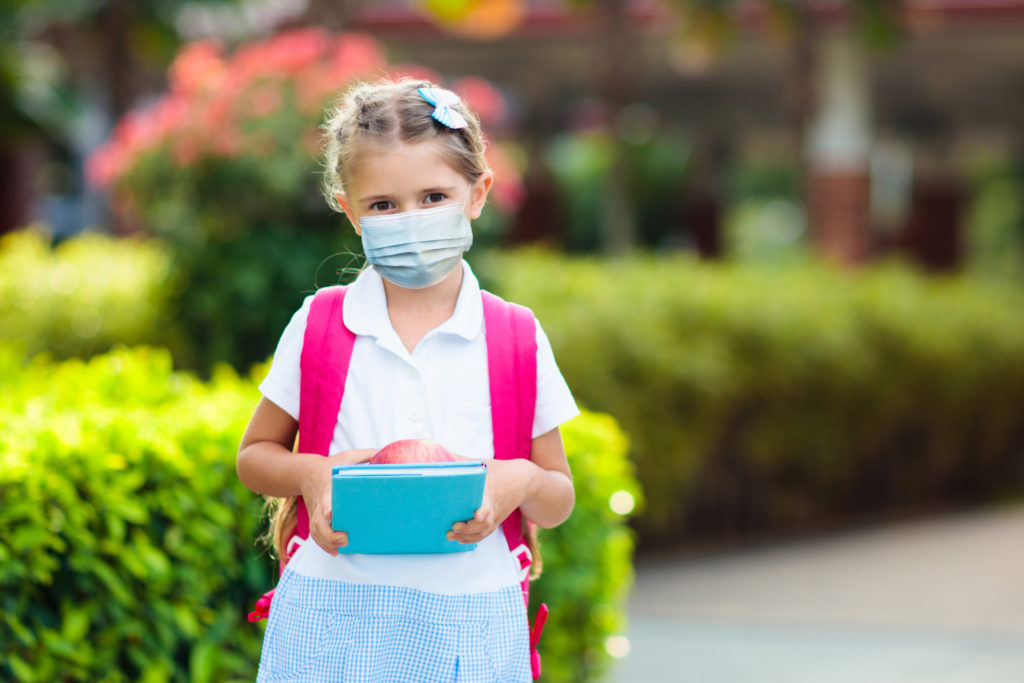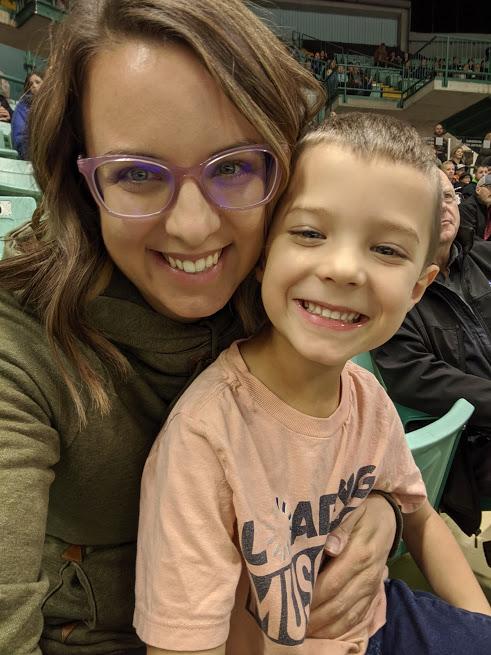With the pandemic, back-to-school is different this year with new measures in place to reduce the risk of infection.

There are many considerations for the new school year, like what safety precautions are being taken and how they will be followed. If your child has a food allergy, you’re also thinking about how this new reality impacts the way it’ll be managed at school.
Although the pandemic has created some havoc in our everyday lives, those with food allergy may actually benefit from the increased focus on hygiene for everyone, like:
- Washing hands with soap and water before and after eating
- Not sharing food/drinks, straws, utensils and food containers with others
- Cleaning surfaces, like desks and tables, with commercial cleaners or wipes

Karen B. of Sherwood Park, AB, has a 6-year-old son with egg and peanut allergies, who has started grade one this month. She speculates that the extra cleaning and physical distancing required might help reduce the exposure to his food allergens. “The measures may be that much better for lessening the chances of cross-contamination, there might be even less of a risk,” she says.
In Calgary, AB, Cecily’s* 11-year-old son has allergies to peanut, tree nuts and shellfish, and asthma. She explains that he advocates for himself and is great about carrying his epinephrine auto-injector at school. While Cecily agrees that the extra measures taken by schools might help reduce risks for her son’s food allergies, she’s also thinking about his asthma. She shares, “September can be a tricky month for my son’s asthma, and we have to consider his increased risk for more severe effects with infection as well as an anaphylactic reaction.”

Renee S. of Lacombe, AB, has a 6-year-old son with a peanut allergy who recently began oral immunotherapy (OIT). With OIT, he is given small amounts of peanut in gradually increasing doses until he can eat a certain amount of it without having a reaction so long as he’s on this treatment. He has to avoid being active for up to 2 hours after his daily dose, and Renee notes, “My son’s treatment dose will be increasing this month, so we have to think about when he has gym and recess. Though he is undergoing treatment, it doesn’t mean he can fully tolerate peanut yet, so a safe classroom in which he can avoid his allergen is still necessary.”
Across the country, many plans for the 2020/2021 school year involve students in classes, in some form, beginning this month. Cecily explains that parents of kids with food allergies are generally good planners and prepare for scenarios to keep their kids safe, like bringing allergy-friendly food on outings or wipes to clean surfaces. “It can be hard to look ahead at the new school year when circumstances might arise that limit the time or information to make good plans.”
To help address this challenge, parents can focus on communicating with school administrators and teachers. Ongoing conversations are important, particularly during a school year which will be unlike any other. Through communication and collaboration, families and schools can better address the health, safety, and well-being of students, including those with food allergy.
Find food allergy tips and resources, like how to communicate with teachers, checklists, posters, and more to help with back-to-school preparations during COVID-19, including managing face masks and allergic reactions. Visit foodallergycanada.ca/school and the back-to-school with food allergy during COVID-19 section.
*Name changed.
Tags: Back-To-School, covid-19, from the community